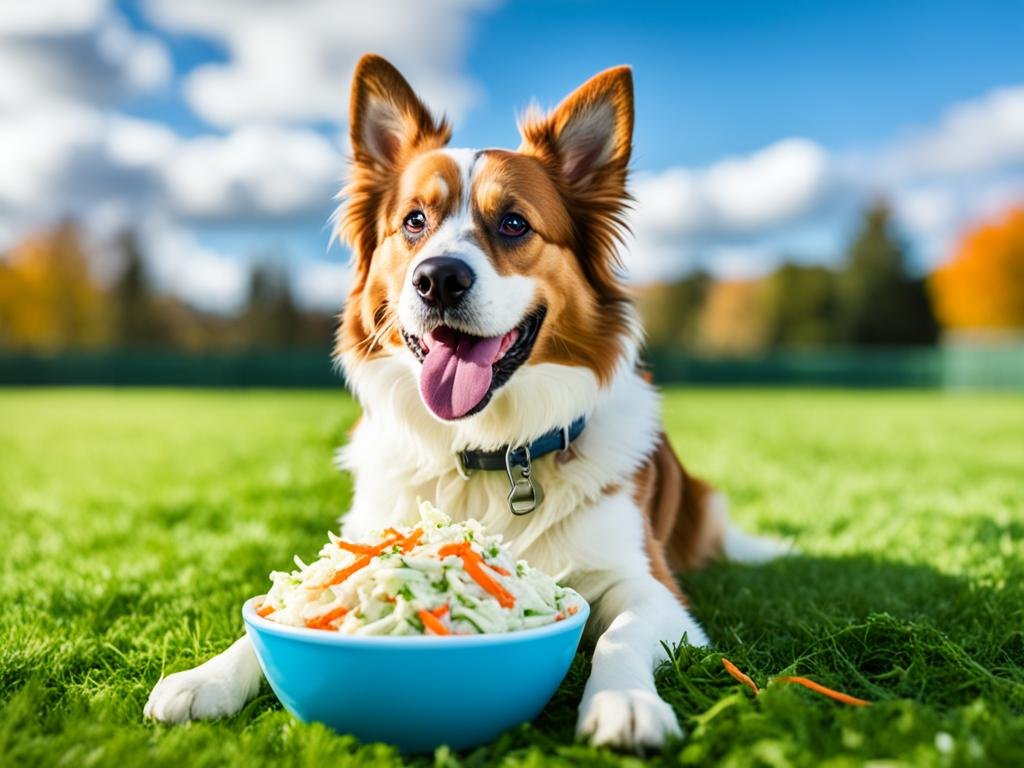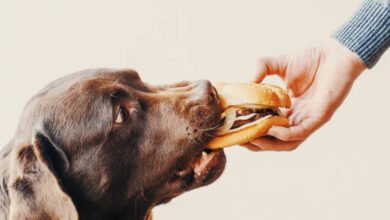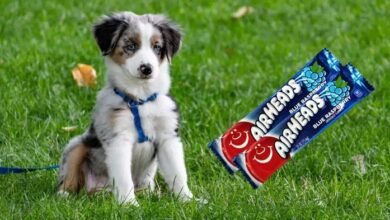
Can Dogs Eat Coleslaw? If you’ve been thinking about sharing this crunchy side dish with your dog, it’s important to know what’s in it first! Coleslaw is usually made from shredded cabbage and carrots, combined with a dressing that can be creamy, like mayonnaise, or tangy, like vinegar.
Some recipes may also add sugar and salt, along with ingredients like onions, garlic, or mustard. While coleslaw can be a delicious treat for us, many of these components can be harmful to dogs. Let’s dive into the details to keep your pup safe while enjoying their own tasty snacks! Let’s explore-can dogs eat coleslaw?
Can Dogs Eat Cabbage Safely?
Can Dogs Eat Cabbage Safely? This is a great question for dog owners looking to include nutritious options in their pet’s diet. Cabbage can be a healthy addition to your dog’s meals when served correctly. Let’s break down its benefits and precautions.
Nutrient-Rich:
- Cabbage contains essential vitamins like C and K, which can support your dog’s immune system and overall health.
Digestive Support:
- The high fiber content in cabbage helps promote healthy digestion. This can be particularly beneficial for dogs needing a little extra help with their gut health.
Considerations When Feeding Cabbage
Moderation is Important:
- While cabbage is safe for dogs, it should be offered in moderation. Too much cabbage can lead to gas and bloating due to its high fiber content.
Cooking Makes it Easier to Digest:
- Cooked cabbage is easier for dogs to digest compared to raw cabbage. Steaming or boiling it can help reduce the likelihood of digestive upset.
Can dogs eat cabbage safely? Yes, but with some precautions. Offering cabbage in moderation, preferably cooked, can provide your dog with valuable nutrients and support their digestive health. Always observe your pet for any adverse reactions when introducing new foods and consult your vet if you have concerns. This way, you can ensure your furry friend enjoys their veggies without any issues!
Why Coleslaw Is Unsafe for Dogs
Can dogs eat coleslaw? The short answer is no, coleslaw is not safe for dogs. Several ingredients commonly found in coleslaw pose health risks to our furry friends. Let’s dive into the specifics of why coleslaw can be harmful to dogs.
Mayonnaise and Creamy Dressings:
- Coleslaw often contains mayonnaise or other creamy dressings that are high in fats.
- High-fat foods can upset a dog’s stomach, leading to diarrhea and vomiting.
- Long-term consumption of fatty foods may also result in pancreatitis, a serious condition that requires veterinary attention.
Toxic Ingredients
Onions and Garlic:
- Many coleslaw recipes include onions and garlic, both of which are toxic to dogs.
- Even small amounts can damage red blood cells, leading to anemia.
- Symptoms of onion and garlic toxicity include weakness, lethargy, vomiting, and pale gums. If your dog shows these signs after eating coleslaw, contact your vet immediately.
Irritating Additives
Vinegar and Sugar:
- Vinegar-based dressings can irritate a dog’s digestive system, potentially leading to stomach upset.
- Sugar, often added to enhance flavor, can also disrupt your dog’s blood sugar levels and contribute to obesity and other health issues.
Can dogs eat coleslaw? It’s best to keep this dish away from your pup. The combination of high-fat dressings, toxic ingredients like onions and garlic, and irritating additives makes coleslaw unsafe for dogs. Instead, consider offering dog-friendly snacks that provide health benefits without the risks!
The Health Benefits of Cabbage for Dogs
When considering can dogs eat coleslaw, it’s important to focus on the main ingredient: cabbage. While coleslaw may not be suitable for dogs due to its harmful additives, cabbage itself can be a nutritious option for your furry friend when offered in moderation. Let’s explore the health benefits cabbage can provide for dogs.
Weight Management:
- Cabbage is a low-calorie vegetable, making it an excellent choice for dogs that need to maintain a healthy weight.
- It serves as a great filler without adding extra calories, helping to keep your dog satisfied.
Rich in Antioxidants
Immune Support:
- Cabbage is packed with antioxidants, which help boost your dog’s immune system.
- These antioxidants protect against free radicals and can promote overall health and longevity.
Anti-Inflammatory Properties
Skin and Coat Health:
- Cabbage contains anti-inflammatory compounds that can support skin and coat health.
- Regular consumption may help alleviate skin irritations and promote a shiny coat.
Fiber for Digestive Health
Healthy Digestion:
- The fiber in cabbage aids in regulating bowel movements, promoting a healthy gut.
- Fiber can help prevent constipation and contribute to a balanced digestive system.
While can dogs eat coleslaw is a question best answered with a “no,” cabbage itself is a beneficial vegetable for dogs when served plain and in moderation. Its low-calorie content, rich antioxidant profile, anti-inflammatory properties, and fiber make it a healthy addition to your dog’s diet. Just remember to introduce it gradually to avoid any digestive upset!
Risks of Feeding Dogs Coleslaw Ingredients
When considering can dogs eat coleslaw, it’s crucial to understand the potential risks associated with its ingredients. While coleslaw might be a tasty treat for humans, it can pose serious health hazards for our furry friends. Let’s break down the dangers of some common ingredients found in coleslaw.
Anemia Risk:
- Onions and garlic, even in small amounts, can be toxic to dogs and cause hemolytic anemia, which damages red blood cells.
Symptoms to Watch For:
- Signs of onion or garlic toxicity include weakness, lethargy, vomiting, and pale gums.
- If you suspect your dog has consumed these ingredients, contact a veterinarian immediately.
High-Fat Ingredients: Mayonnaise
Obesity and Pancreatitis:
- Mayonnaise and other creamy dressings are high in fats, which can lead to digestive upset and increase the risk of pancreatitis.
Long-Term Health Effects:
- Regular consumption of fatty foods can contribute to obesity, which brings a host of other health problems, including diabetes and joint issues.
Harmful Seasonings: Mustard and Salt
Dehydration and Imbalance:
- Seasonings like mustard and excessive salt can lead to dehydration and electrolyte imbalances in dogs.
Gastrointestinal Upset:
These seasonings can also irritate the digestive tract, leading to vomiting and diarrhea.
While you might be tempted to share your coleslaw with your dog, the answer to can dogs eat coleslaw is a firm “no.” The risks associated with ingredients like onions, garlic, mayonnaise, and harmful seasonings far outweigh any potential benefits. Always prioritize your dog’s health by sticking to dog-friendly foods!
Healthy Ways to Feed Dogs Cabbage
When exploring whether can dogs eat coleslaw, many pet owners may wonder about the safety of cabbage, a primary ingredient. While coleslaw is not suitable for dogs, cabbage can be a healthy addition to their diet when prepared correctly. Here’s how to safely offer cabbage to your furry friend.
Small Portions:
- Start by giving your dog small amounts of plain, cooked cabbage. Cooking makes it easier for them to digest and reduces the risk of gas.
Cooking Methods:
- Steam or boil the cabbage without any added seasonings or oils. Avoid frying or sautéing, which can introduce unhealthy fats.
Avoid Seasonings and Dressings
Keep It Simple:
- Dogs don’t need fancy flavors! Skip the salt, spices, and dressings when preparing cabbage for your dog. These can cause digestive issues and may be harmful to their health.
No Additives:
- Make sure that the cabbage is free from any sauces or dressings, which can include harmful ingredients that are unsafe for dogs.
Explore Other Healthy Vegetable Options
Nutritious Alternatives:
- Carrots, green beans, and sweet potatoes are excellent alternatives to coleslaw. They provide various vitamins and minerals while being low in calories.
Mix It Up:
- Consider mixing a small amount of cooked cabbage with other safe veggies for a nutritious treat that keeps mealtime interesting for your dog.
Conclusion
In conclusion, while can dogs eat coleslaw is a resounding no due to the harmful ingredients often found in it, cabbage can be a beneficial addition to your dog’s diet when served correctly. By offering plain, cooked cabbage in moderation and avoiding harmful seasonings, you can provide a healthy snack that your dog will enjoy!




